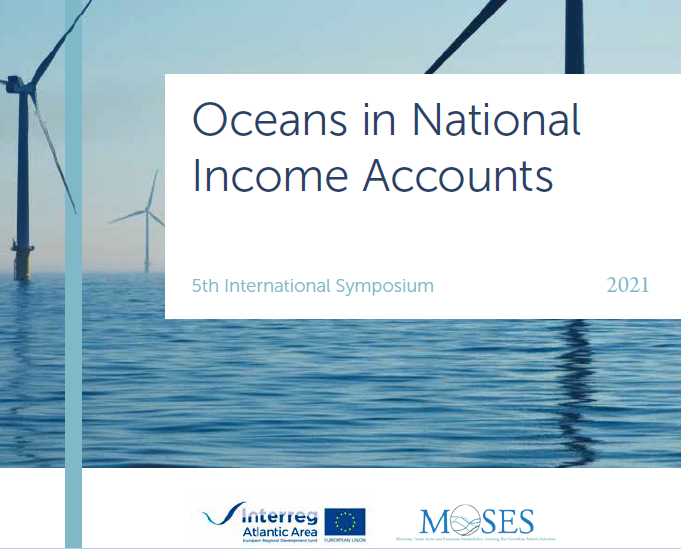The Evolution of Thinking on the Ocean Economy

The Journal of Ocean and Coastal Economics, Volume 8, Issue 2, features eleven papers drawn from the recent Fifth International Symposium on the Oceans in National Income Accounts.
The fifth International Symposium on the Oceans in National Income Accounts, hosted by the Socio-Economic Marine Research Unit (SEMRU) of the National University of Ireland, Galway, was held on 24th and 25th of March 2021. Due to Covid-19 related international travel restrictions the symposium was an online event. Rather than being a limitation, the virtual nature of the symposium meant that some of the leading representatives from government, industry, academia and international organizations from across the globe were able to share their national and international perspectives on progress made in measuring and monitoring the ocean economy and marine ecosystem service values.

Volume 8, Issue 2 of the Journal of Ocean and Coastal Economics features eleven papers drawn from the symposium. The papers cover the current status of defining the ocean economy within national accounts, the expansion of ocean accounting to include environmental economic values, and methodological tools to assist the integration.
The papers highlight an evolution in ocean economic thinking: from defining and measuring the blue economy as statistics related to GDP, to an information system that provides decision makers with the facts they need around marine ecosystem service flows and changes.
“The papers in this special edition document the evolution of thinking on ocean economy and environment accounting and highlight the challenges that still remain in ensuring that policy makers have the most relevant information at their disposal…”
The papers in this special edition are organized around a number of major themes:
- Why we need improved ocean economy statistics and the role of satellite accounting
- Revised national standards for ocean and related industry classification
- Tools for improved usage of ocean economy statistics
- Pathways to a sustainable ocean economy
- Ecosystem service valuation and natural capital accounting for the oceans
In their paper, “Prospects for Valuation in Marine Decision Making in Europe,” authors Rob Tinch, Stephen Hynes, Claire Armstrong, and Wenting Chen point out that globally, marine systems face “a triple whammy” of increasing industrialization and urbanization, increasing loss of biological and physical resources, and decreasing resilience due to the consequences of climate change. The UN Sustainable Development Goals can only be achieved if the decline of ecosystems and biodiversity can be halted and reversed. This will require effective control of pressures, meaningful protection and enforcement of protected areas, and significant investments in ecosystem restoration. Their paper explores the important role of economic valuation and appraisal in achieving these goals in marine systems, through identifying and quantifying the economic and social consequences of marine exploitation and restoration activities.
Recognising the services provided by healthy ecosystems, quantifying them, and valuing the benefits to society from those services helps decision makers to take such values into account when assessing policies and priorities.
Ultimately, the sustainable development of our ocean resources requires the protection of marine ecosystems to ensure non-declining opportunities for future generations (the capital approach to sustainable development). To achieve this, measurement of the use of the oceans and the impacts on marine ecosystems are needed to plan future policies, evaluate past decisions and to frame discussions around social and environmental goals for marine policy. Repeated measures across a range of indicators are much more valuable in monitoring progress along the path to sustainability than a focus on the value added by market output of the ocean industries to GDP at any point in time.
“The special issue should provide guidance and support to practitioners and decision-makers that aids them in their assessment of the range of economic, social and environmental conditions that are necessary to achieve a more sustainable ocean economy.”
The next phase of development following from Galway is likely to be the continued integration of marine ecosystem service flows into national income account frameworks and the integration of the concepts of ocean related human and social capital and equity considerations into an expanded dashboard of ocean economy indicators.
